

NEGEV CONNECTION
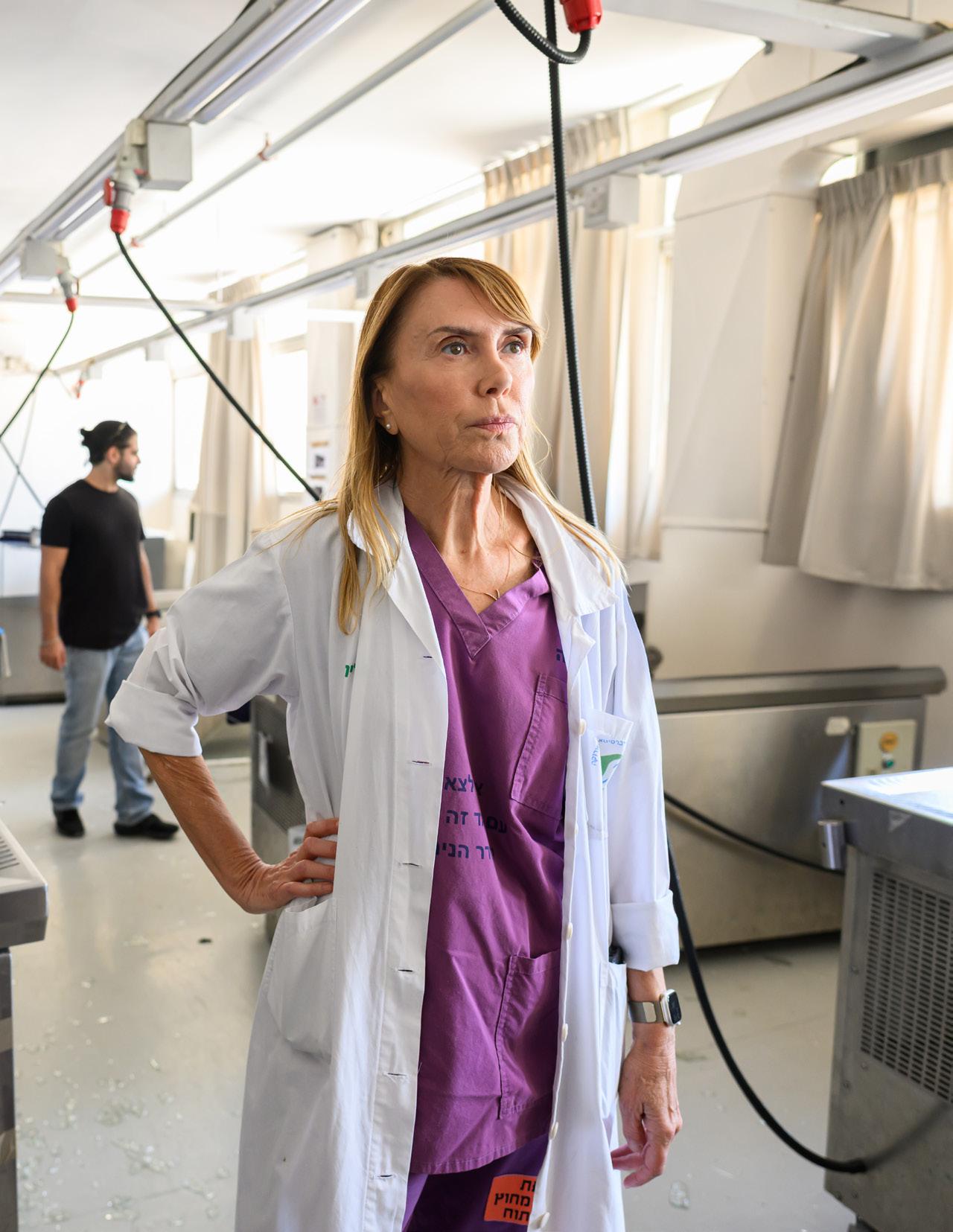
Light has finally broken through the darkness.
We are profoundly relieved that the remaining hostages who survived captivity in Gaza are now home in Israel — including Ben-Gurion University of the Negev (BGU) alumnus Avinatan Or and Segev Kalfon, nephew of Revital Atar Kalfon, who works in the Ben-Gurion Research Institute for the Study of Israel and Zionism. BGU student and former hostage Noa Argamani, Avinatan’s girlfriend, has long awaited this day, along with the rest of us.
As we write this, we rejoice for those who have finally been freed, even as we continue to wait — filled with a mixture of both hope and heartbreak — for the return of the remains of those who were killed and have not yet come home.
The BGU community has been deeply scarred since October 7. One out of every ten people murdered that day belonged to our university family — students, faculty, alumni, friends. Their absence is felt in every classroom, every laboratory, every corner of our campus.
And yet, amid this pain, we see resilience. We see community. We see the unbreakable spirit that has always defined Ben-Gurion University and the people of Israel.
As we welcome Avinatan, Segev, and others home, we hold each other close. We grieve. We continue to hold on to hope for more light in the days ahead.
And together, one day at a time, we can begin to heal.
Am Yisrael Chai
FROM RUBBLE TO RESILIENCE:
A Campus Reborn
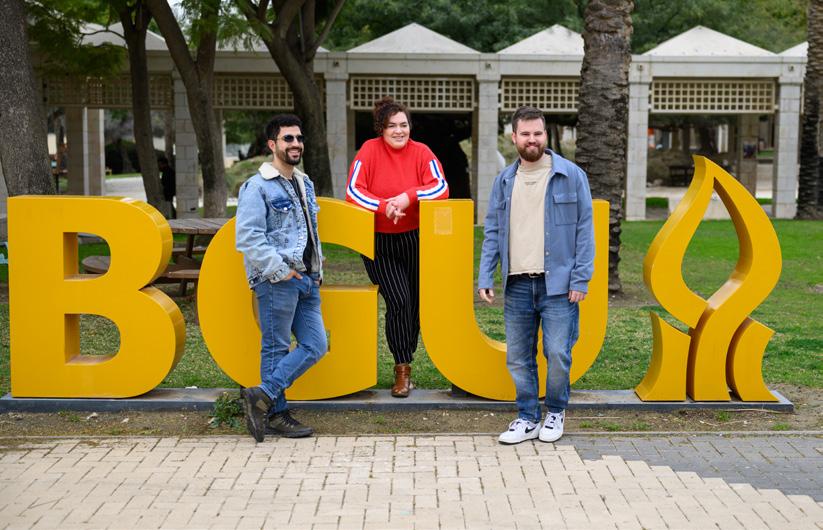
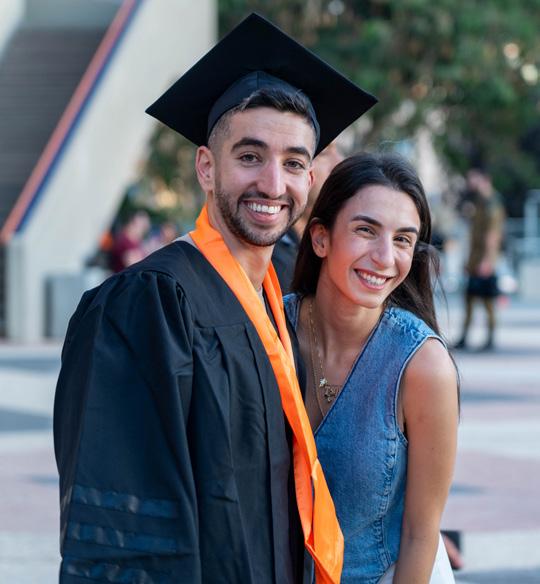
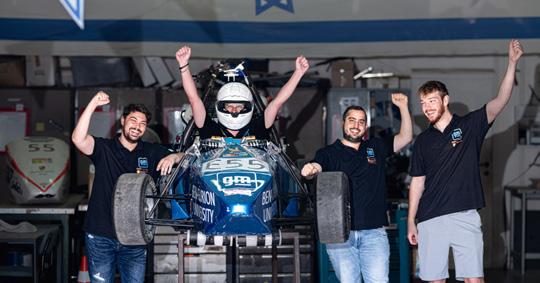

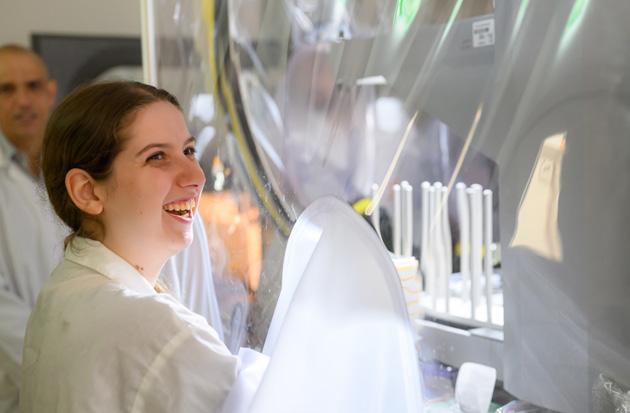
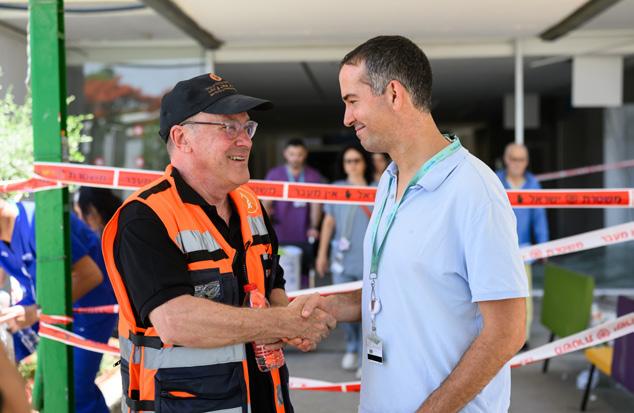

NECHAMA KASHUK: Building Medicine and Community in the Negev
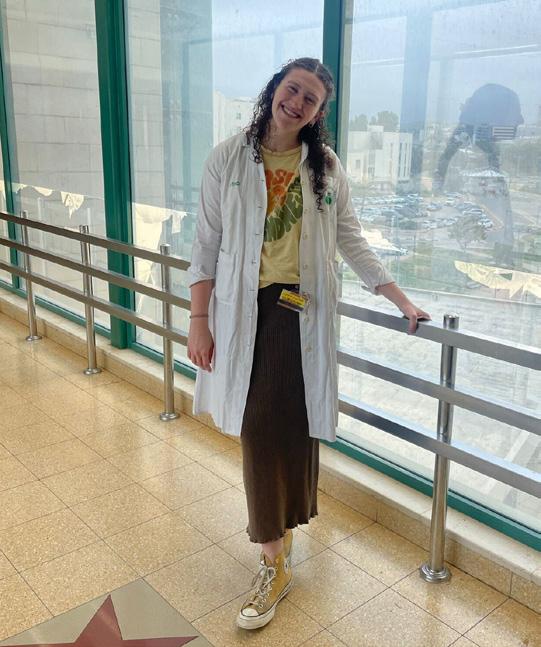
Why did you enroll at BGU and specifically in its medical school?
QI applied to all the medical schools in Israel, but from the very beginning, the process at BGU felt different. The school emphasizes personal interviews, and I felt genuinely seen. They weren’t just looking at grades or test scores—they wanted to understand who I was. That gave me a strong sense that BGU was where I would want to study. Beyond that, the school’s vision and emphasis on humanistic and clinical education really resonated with me.
When Nechama Kashuk made Aliyah in middle school, she brought with her more than a love for Israel—she brought a drive to make a meaningful impact. Now finishing her second year at Ben-Gurion University of the Negev’s (BGU) Medical School for International Health (MSIH), Nechama has already distinguished herself academically, through service, and as a mentor to local students.
A native English speaker, she completed sherut leumi (national service) volunteering with pediatric cancer patients at Soroka University Medical Center. She was also selected for Ilanot, an elite BGU program committing graduates to serve in the Negev.
With a keen eye on both medicine and humanity, Nechama embodies BGU’s holistic approach, balancing rigorous studies with community involvement and a deep connection to the region. Nechama shares more about her journey in the following conversation with Negev Connection.
Can you describe your experience so far at MSIH?
QIt’s been wonderful. The school places a lot of emphasis on clinical experience, not just in medicine but in patient communication and reflective practice. For instance, we have courses like Masasa Sifruti, a literature journey where we read texts and explore human nature and philosophy. We also have clinical weeks where we interview patients, work with social workers, and get feedback from peers, which helps us build interpersonal skills.
How does BGU’s approach to medical education foster the doctor-patient relationship?
Q
BGU is unique in how it emphasizes the social role of doctors. In the preclinical years, for example, we have full-day clinical teaching sessions where we interview patients and practice interpersonal communication. We also participate in oncology week and “disaster” simulations, where actors help us practice delivering difficult news. Courses on ethics, medicine and the Holocaust, and literature all reinforce the idea that being a doctor is about more than just clinical knowledge—it’s about humanity, empathy, and social responsibility.
You’re part of the Ilanot Program, which commits you to remain in the Negev after graduation. Why did you decide to participate?
Q
I felt a deep sense that this was the right path. It was a bit of a risk since the program is new, and there weren’t alumni to consult. The commitment is long—seven years—but it’s been incredibly rewarding. The program allows us to engage with Bedouin communities and other populations in the South, and includes workshops focused on leadership and personal growth.
Being part of this cohort creates a strong sense of community and shared purpose, which makes serving in the Negev feel collaborative and meaningful.
How has your past mentorship and volunteer work shaped your approach as a future doctor?
Q
My national service involved mentoring children removed from their homes and working with kids battling cancer. These experiences built my character and helped me understand my strengths and weaknesses. They reinforced my desire to pursue medicine, particularly the human side of care. Dealing with people in challenging situations taught me empathy, patience, and self-awareness—skills I carry into my medical studies and hope to bring to my future patients.
Can you share an example of how BGU’s approach to the doctor-patient relationship has influenced you?
Q
One mentor, the former head of the internal ICU at Soroka, taught me that burnout in medicine only happens when you aren’t being yourself. Authenticity is key. If you approach patients authentically and work on being a better version of yourself, you don’t get exhausted— you engage meaningfully. That lesson has guided me to prioritize being genuine with patients, which I think is fundamental to being an effective and compassionate doctor.
How did the events of October 7th impact your studies and perspective as a future physician?
Q
Seeing the urgent need for doctors during the early days of the war highlighted how essential our work is. Even when we couldn’t directly help, knowing that we’re training to serve in critical situations gave us motivation. Hearing from doctors on the frontlines reinforced the importance of being prepared, and emphasized that being actively engaged is crucial. It showed me that our future roles are vital to the wellbeing of the country.
With such a busy schedule, what drives you to balance studies, volunteer work, and community involvement?
Q
I prioritize being in touch with myself—spiritually, emotionally, and physically. Prayer, Shabbat, learning, and yoga are anchors for me. When your activities come from a place of purpose and authenticity, balancing them doesn’t feel overwhelming. Maintaining strong relationships and staying connected with my feelings allows me to manage my commitments effectively.
NILI MARGALIT: Hostage, Survivor, Hero
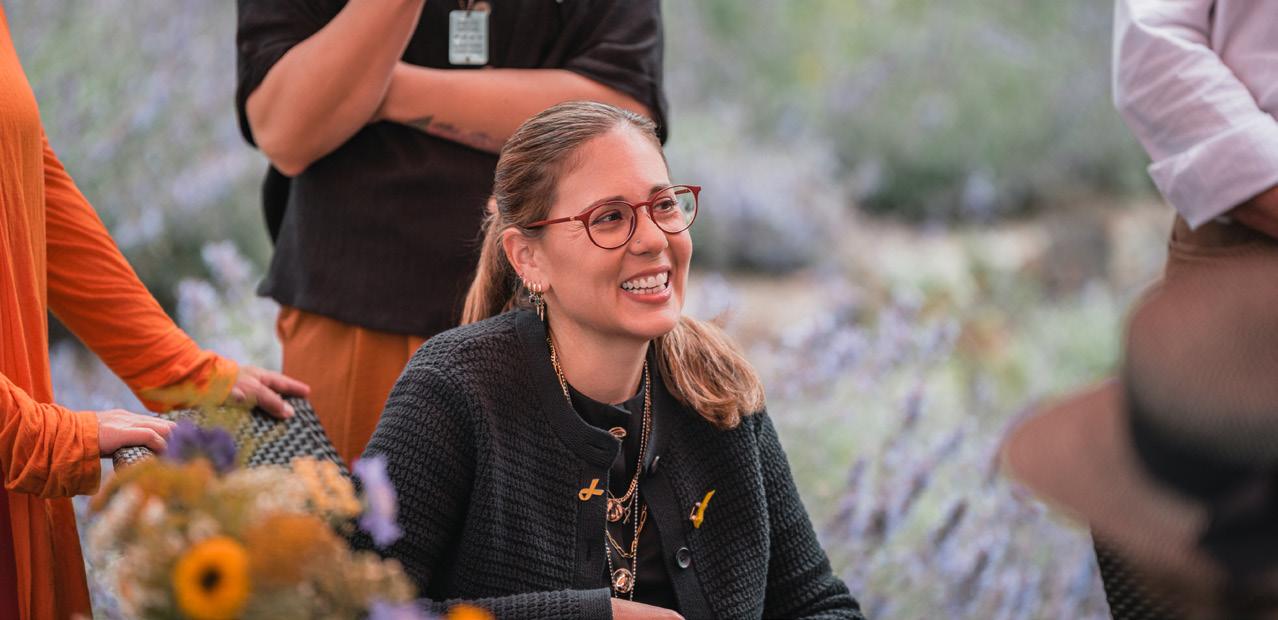
JULY 23-25, 2025
A4BGU brought hostage survivor Nili Margalit to Colorado for a powerful three-day series of events that touched hundreds of lives. A nurse trained at Ben-Gurion University and a lecturer in the Faculty of Health Sciences, Nili shared her harrowing personal story of captivity and resilience in conversation with BGU President Prof. Daniel Chamovitz.
Kidnapped from her home in Kibbutz Nir Oz during the October 7 Hamas attack—which claimed her father’s life and destroyed her home—Nili spent 55 days in Hamas tunnels. Even in captivity, she risked her life to care for fellow hostages, especially the elderly, by providing medical treatment, managing medications, and advocating for essential supplies.
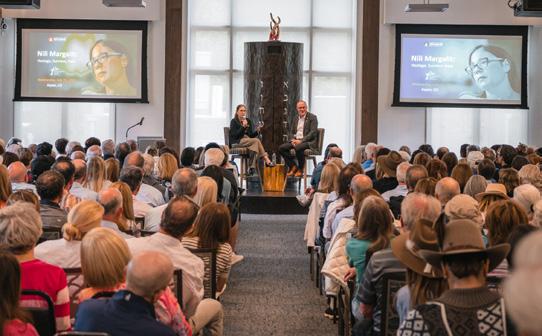
Over three days, A4BGU created opportunities for Nili to connect with the Colorado community:
• Snowmass VIP Reception – 50 guests welcomed Nili at the home of Karen W. Davidson.
• Aspen Chabad JCC Program – Nearly 300 attendees heard Nili’s moving story at the week’s largest gathering, paired with a matched fundraising opportunity led by National Board Member Melinda Goldrich.
• Cycling the Maroon Bells – A small, enthusiastic group joined Nili and A4BGU CEO Doug Seserman for a ride showcasing community spirit and A4BGU’s impact in Aspen.
• Vail Brunch & Program – Congregation B’nai Vail hosted 175 people for a meaningful program at the Aspen Chapel, opened by Rabbi Joel Newman.
Wherever she spoke, Nili moved audiences with her grace, humor, and strength—showing not only her personal resilience, but also the life-changing role that Ben-Gurion University of the Negev plays for its people, its region, and the future of Israel.
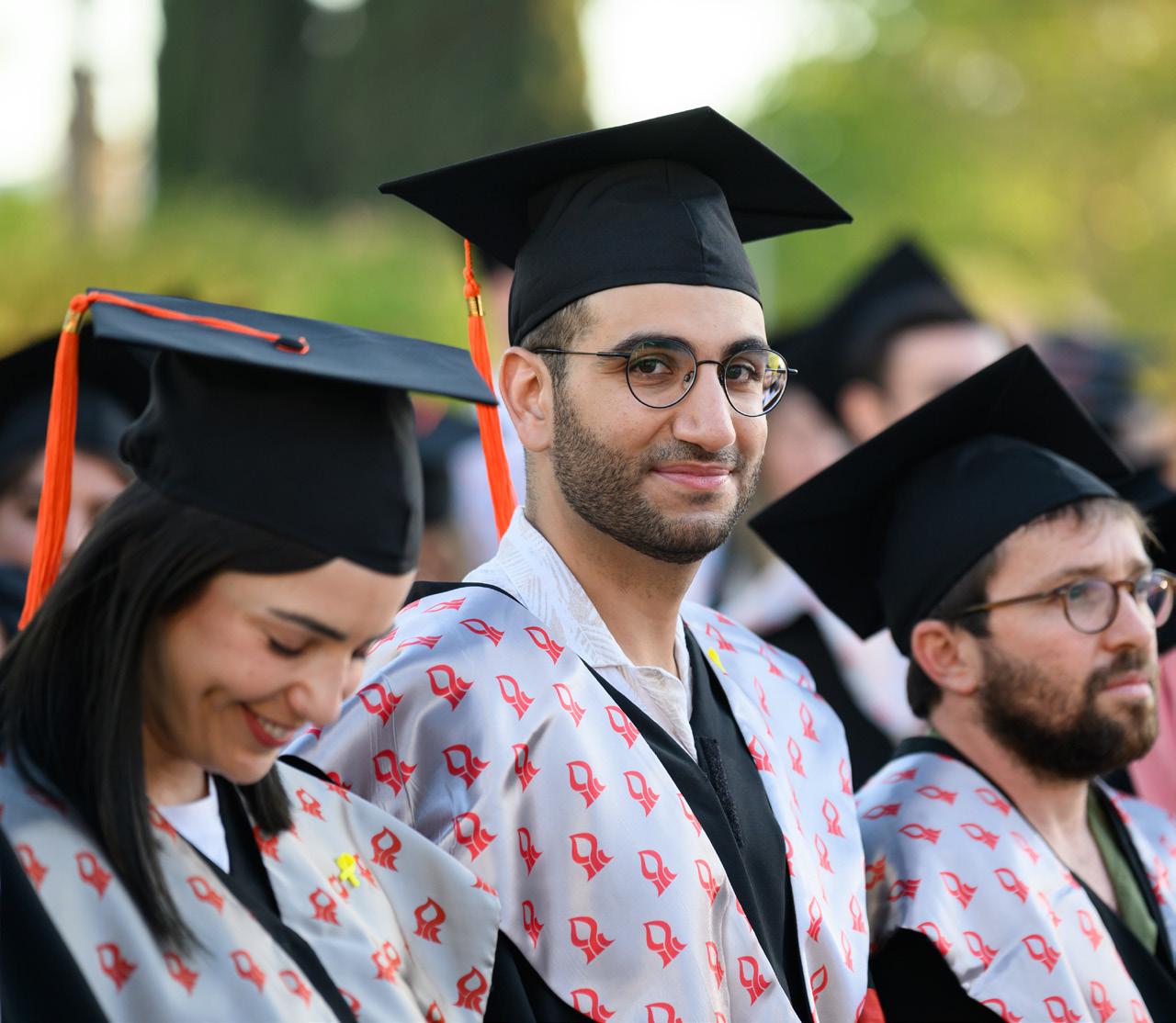
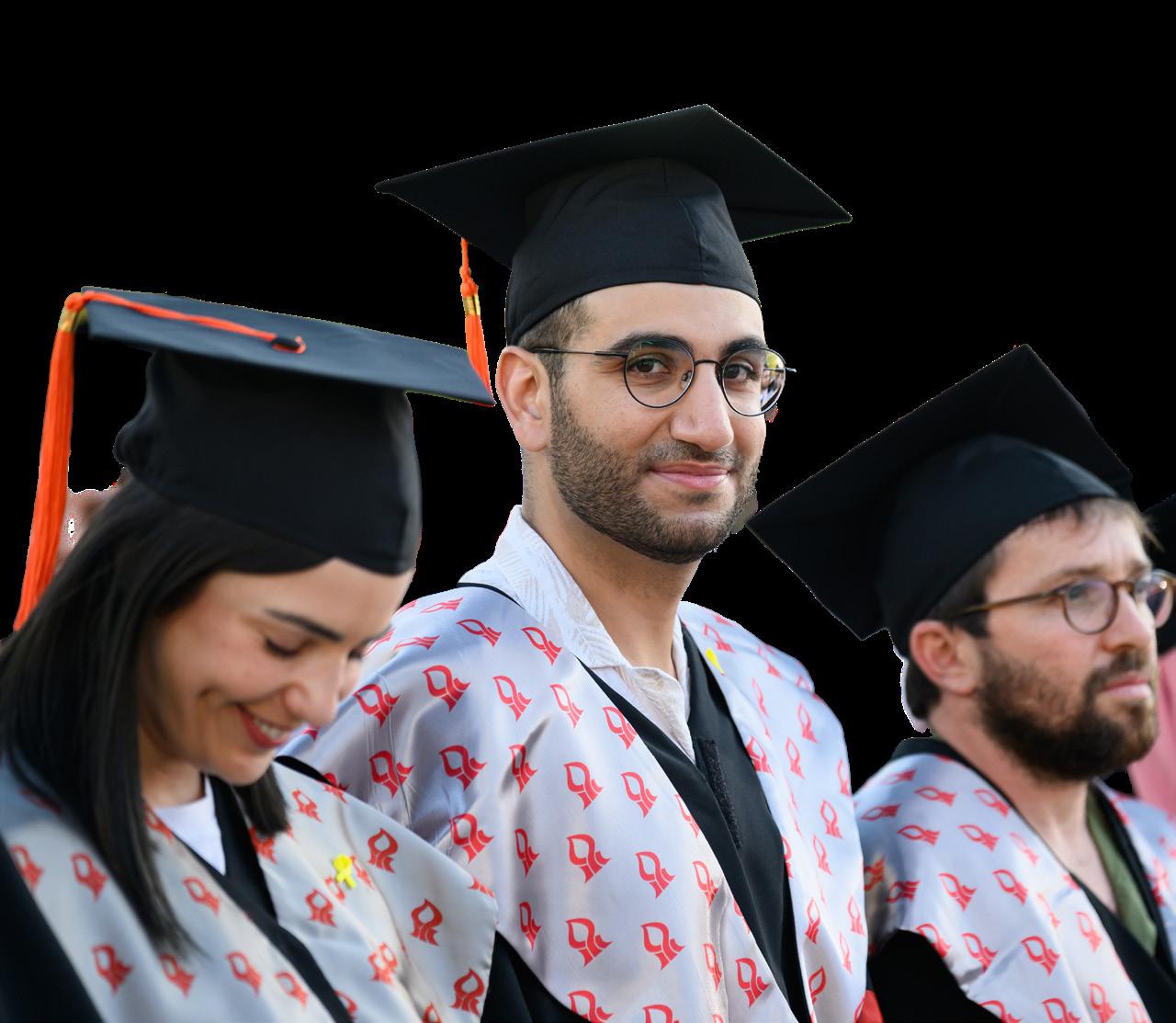
BGU’s role as the anchor institution of the Negev has never been more vital to Israel’s recovery and rebuilding efforts. Please join us in helping the University provide the psychological, academic, and community support needed to heal from the wounds of war and emerge stronger than ever.
$4Million
More than from donors in 33 states has been secured to support Israeli students, reservists, faculty, and staff directly affected by the Israel-Iran War.
Scan QR code to donate
The Recovery and Resilience Fund,
By the Numbers
Since June 1, over $4 million has been secured to support the BGU community’s urgent needs:
$1M+
has been raised to begin to repair the extensive damage to BGU campus buildings caused by the recent Iranian missile attacks.
AMERICANS FOR BEN-GURION UNIVERSITY SUPPORTING ISRAEL FROM ACROSS THE US
STUDENT RESERVIST
SUPPORT AT BGU
Recognition Stipends
Two tuition-free semesters
Up to five free courses
Grade flexibility and deferment for exams
Refresher courses & skill workshops
Emotional support sessions
STORIES THAT HEAL:
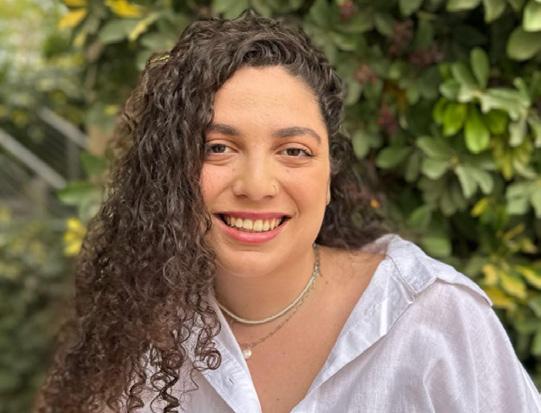
For Shani Daabul, a third-year student majoring in Psychology and Management at BGU, a class project has turned into a much-needed national resource for Israel’s children. This past year, together with her friend and classmate Maayan Bin Nun, she co-founded a website that helps explain the Swords of Iron War to young children—specifically, preschoolers— through carefully crafted social stories.
The idea, Daabul recalled, began in a developmental psychology course.
“We were assigned to write a story to help children process difficult and confusing situations. At the endof-year exhibition, standing in front of all the books our class had created, I felt deep in my gut that this couldn’t just stay inside the classroom,” she said.
With the support of BGU’s Psychology Department and funding from University President Prof. Daniel Chamovitz, Daabul and Bin Nun built a website that now brings together 42 stories—covering everything from air raid sirens, to physical injuries, to parents called up for reserve duty, to grief and loss.
“One of the stories I personally wrote was dedicated to young women serving as combat surveillance soldiers in the IDF, who were killed in the Nahal Oz attack. Seeing these stories actually reach children in communities near the Gaza border and in the north of Israel was one of the most emotional and meaningful moments of my year,” Daabul said.
Storytelling plays a profound role in trauma recovery for children because it gives them a way to process overwhelming experiences that may feel too big, frightening, or confusing to understand. It creates a sense of safety and structure, helps make meaning of difficult situations, and strengthens connection and empathy.
For Daabul, whose academic focus is psychology, the world of entrepreneurship was previously uncharted territory.
“Coming from a psychology background, the world of entrepreneurship felt completely foreign to me,” she admitted. “But I signed up for LEADERS—an interdisciplinary program open to all departments at BGU—because I was curious about impact-driven ventures: initiatives that combine social value with real-world sustainability. I ended up learning 20 times more than I expected, but the real gift was the people I met. I found myself surrounded by an exceptional group of peers who inspired me daily—and I truly hope they’ll be friends for life.”
At a time when the weight of academics and the reality of war felt overwhelming, the project gave Daabul renewed energy.
“When burnout from the degree was starting to creep in,” she shared, “this sense of connection and purpose gave me a much-needed spark.”
This article is adapted from a Yazamut 360° post Learn more about the project at: www.storyshield.org
FROM LATVIA TO THE NEGEV:

Dr. Gabriel Rubanenko’s life reflects immigration, Zionism, and medical achievement—all rooted in his devotion to Israel and Ben-Gurion University of the Negev (BGU).
Born in Riga, Latvia, Rubanenko immigrated to Israel in 1972, graduated from the Technion’s medical school, and served as a medical officer in the Israel Defense Forces. After specializing in orthopedic surgery in Los Angeles, he built a successful career in the U.S.—but never lost his deep connection to Israel. Today, all his children and grandchildren live there, and he plans to return permanently next year. “All my life, I’ve felt Israeli,” he says.
Rubanenko discovered BGU during the Second Intifada, drawn to its pioneering water research and its role in fulfilling David Ben-Gurion’s vision for the Negev. He went on to fund scholarships, support agricultural innovation projects at BGU’s Sde Boker campus, and build lasting friendships with its faculty.
His ties to Beer-Sheva also run deep: as an IDF medical officer, he once rotated through Soroka University Medical Center, BGU’s teaching hospital.
That history made the recent missile strike on Soroka and the BGU campus especially personal. “The hospital serves everyone—Jews, Arabs, Bedouins, Christians—without discrimination. It must be rebuilt stronger.”
For Rubanenko, BGU stands apart: “It’s not just a university. It’s a driver of regional growth, a force for demographic development, and a bridge between diverse communities. It’s educating the future doctors, engineers, and researchers—not only for Israel but for its Arab and Bedouin citizens as well.”
As he prepares to move back to Israel, Rubanenko leaves behind four decades of professional success in the U.S. and a legacy of philanthropy that continues to shape the Negev. Through his support of BGU, he is helping fulfill Zionism’s boldest promise: to make the desert bloom with knowledge, opportunity, and hope.
Your Philanthropic Legacy:
How do you want to be remembered?
Endowment to fund your legacy in perpetuity
Naming opportunities for building or capital project
Fund specific research initiatives and/ or programs of your interest
Faculty chair and recruitment opportunities
Scholarships and fellowships
Already included A4BGU in your estate plans?
Let us know so we can welcome you to the Living Legacy Society.
EXAMPLE GIFT TYPES
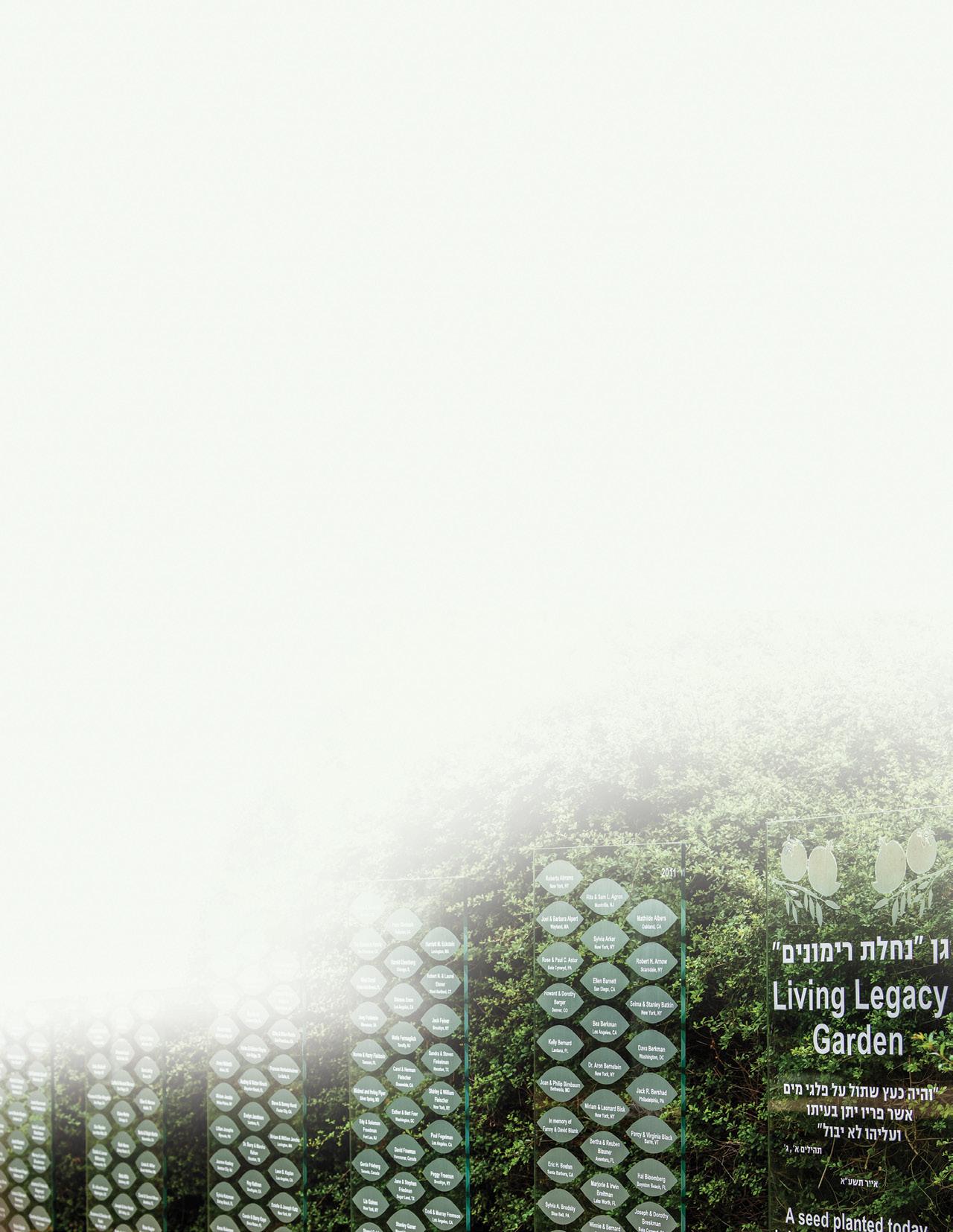
For more information plannedgiving@a4bgu.org 646-452-3689 a4bgu.org/planned-giving
Make Ben-Gurion University of the Negev part of your legacy by establishing a Charitable Gift Annuity.
NOTES:
• The rates are for ages at the nearest birthday.
• In the month you use cash to establish a gift annuity, a final calculation is made determining the portion that will be paid to you tax-free.
*New for 2023: donors over the age of 70 1/2 can make tax-free Qualified Charitable Distributions from their IRAs of up to $50,000 in one calendar year in exchange for one or more charitable gift annuities. Contact us for more details.
Charitable Gift Annuity Fixed Lifetime Rates
What’s Next for Our Community LOOKING AHEAD
Meet Noa Argamani: A Story of Hope and Miracles
Austin, Seattle, Los Angeles and Bay Area
December 7-17, 2025
Startup Stories from Yazamut 360: Meet the Next Generation of Entrepreneurs
December 10, 2025
From Research to Reality: Pioneering Medical Breakthroughs at BGU
Rockville, MD
February 22, 2026
Who are the Marcuses? Screening
Coral Lakes, FL
February 23, 2026
Houston Annual Benefit
Houston, TX
February 26, 2026
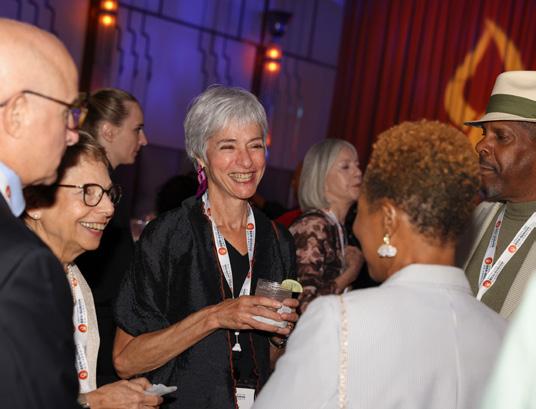
Scan the QR code to learn more about our upcoming events!
Rooted in the Negev: Insight for Israel’s Future
Sarasota, FL
March 11, 2026
Zin Fellows Cohort 8
Israel
March 14-19, 2026
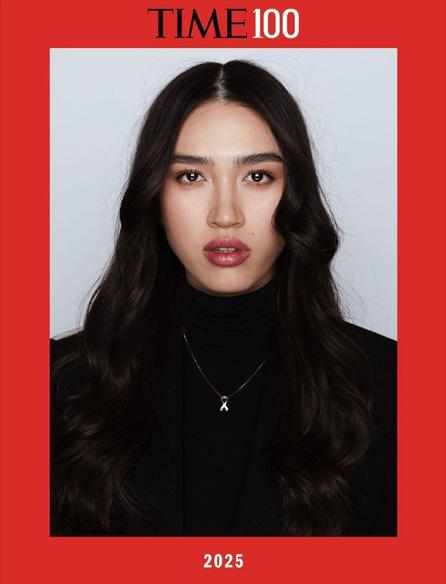

1001 Avenue of the Americas, 19th Floor
New York, NY 10018
ADDRESS SERVICE REQUESTED
